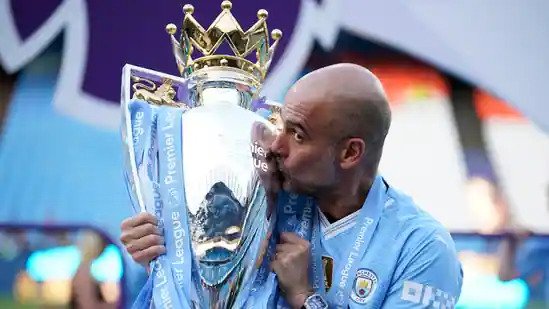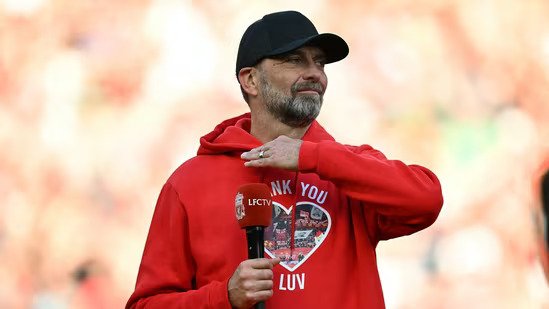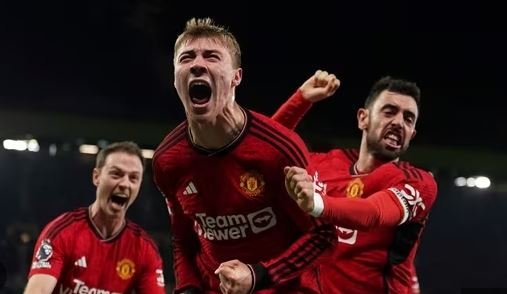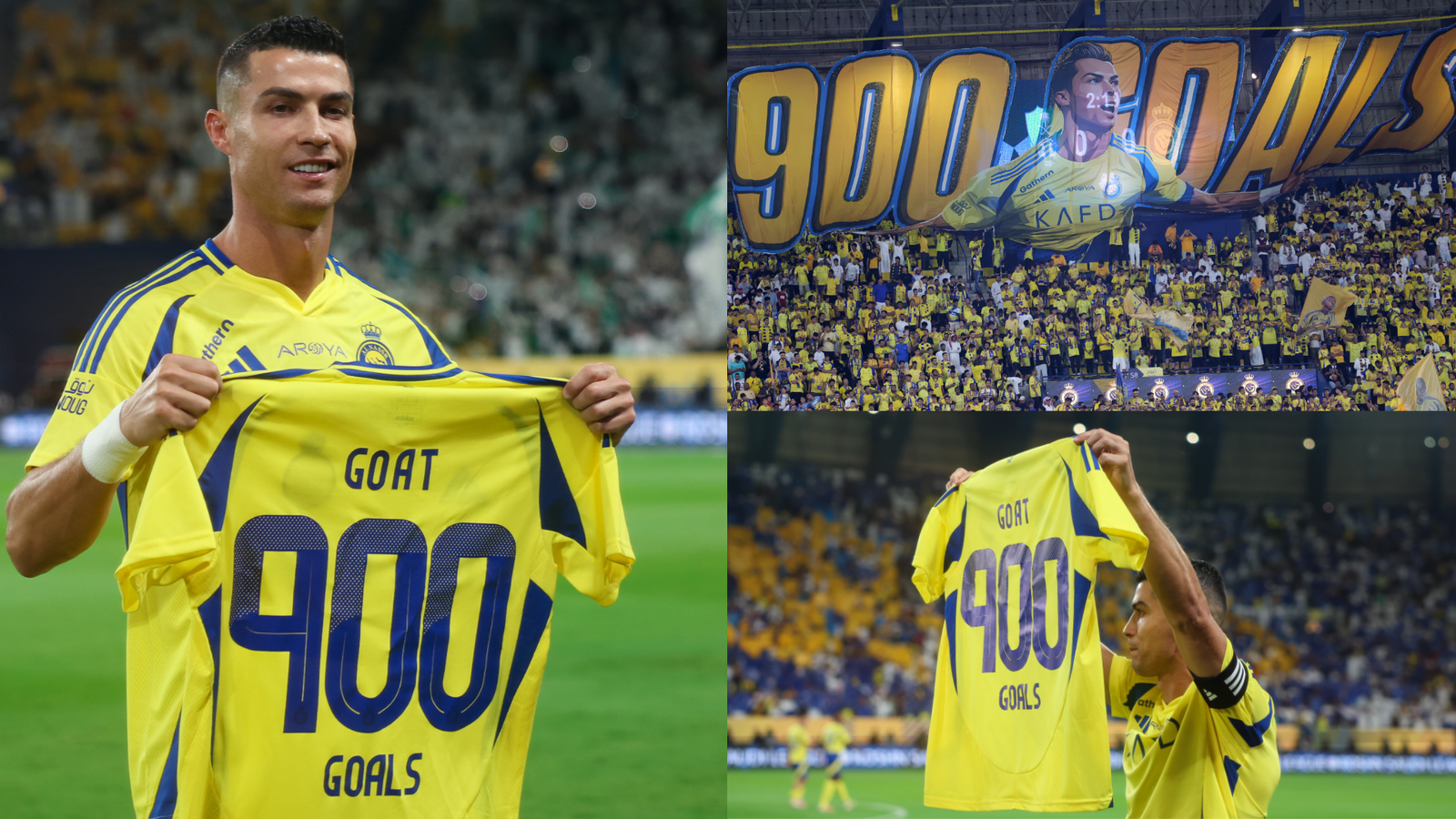Manchester City’s recent feat of clinching their fourth consecutive Premier League title under Pep Guardiola’s stewardship has sparked debates on their historical significance in the realm of English football.
Let’s delve into their remarkable journey and compare it with other legendary teams in English football history.
Pep Guardiola’s leadership has been instrumental in Manchester City’s unprecedented success, securing their sixth league title in seven seasons. Since 2018, barring Liverpool’s triumph in 2020, City has maintained an iron grip on the Premier League trophy. Guardiola’s tally of 17 trophies in eight years at the club is a testament to his managerial prowess, with the possibility of adding an 18th title in the upcoming FA Cup final against Manchester United.

City’s dominance extends beyond domestic competition, as evidenced by their treble-winning campaign last season, which included triumphs in the Premier League, Champions League, and FA Cup. Guardiola has also guided City to three League Cup victories and a memorable appearance in the 2021 Champions League final.
Despite their recent achievements, questions linger about whether Guardiola’s City ranks as the best in England’s football history. To provide context, let’s reflect on the legacies of other iconic teams.
Liverpool’s golden era from 1973 to 1990 saw them claim a staggering 11 league titles and four European Cups, including three consecutive top-flight titles from 1982 to 1984. Manchester United, under the legendary Sir Alex Ferguson, enjoyed two dominant phases, notably clinching the Premier League, Champions League, and FA Cup treble in 1999. Cristiano Ronaldo and Wayne Rooney spearheaded United’s success in the late 2000s, securing a hat-trick of league titles and a Champions League triumph in 2008.
Arsenal etched their name in history with an unbeaten league campaign in 2003-2004, earning the moniker ‘Invincibles.’ Meanwhile, Preston North End’s unbeaten season in 1888-1889 marked a pioneering achievement in English football.
In conclusion, while Manchester City’s recent dominance is unparalleled in the modern era, the debate over the greatest team in English football history remains subjective. Each era has witnessed its share of remarkable triumphs and iconic teams, contributing to the rich tapestry of the beautiful game.
Also Read: Manchester City Clinches 4th Consecutive Premier League Victory as Arsenal Finishes Second
Emotional Farewell: Jurgen Klopp Bids Adieu with Victory in Final Match as Liverpool Manager
In a poignant conclusion to his tenure as Liverpool manager, Jurgen Klopp bid farewell with a triumphant victory in his last match. Despite finishing third in the standings, nine points behind Manchester City, Klopp’s departure was marked by an emotionally charged atmosphere at Anfield.
Throughout his nearly nine-year reign, Klopp’s presence on the pitch was synonymous with passion and dedication. From touching the iconic “This is Anfield” sign in the tunnel to patrolling the field with his trademark intensity during warmups, Klopp’s rituals resonated with fans and players alike.

Before kickoff, Klopp’s farewell was evident as he waved to supporters and tapped his heart, acknowledging the overwhelming support from the Anfield faithful. The pre-match rendition of “You’ll Never Walk Alone” served as a poignant reminder of Klopp’s profound connection with Liverpool.
As the final whistle blew, sealing a 2-0 victory over Wolverhampton, Klopp embraced his backroom staff and exchanged heartfelt moments with opposing manager Gary O’Neil. Liverpool captain Virgil van Dijk’s tears encapsulated the bittersweet emotions of the occasion, symbolizing the deep bond between Klopp and his players.
Despite the inevitable sadness of Klopp’s departure, the atmosphere at Anfield was one of celebration and gratitude. Fans lined the streets to pay homage to Klopp and his team, showcasing a paper mosaic with the word “JURGEN” as a testament to his enduring legacy.
In the words of Klopp himself, it was indeed “The Last Dance” for Liverpool under his stewardship. Yet, amidst the farewells and reflections, Klopp’s influence on Liverpool transcends wins and losses. His legacy as a transformative figure in the club’s history will endure for generations to come.





